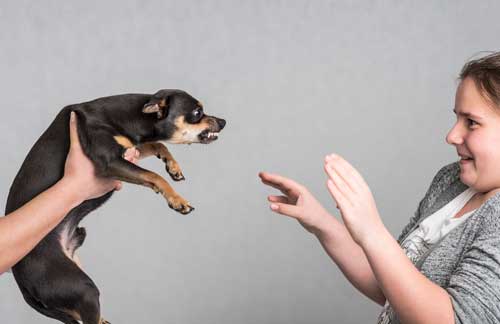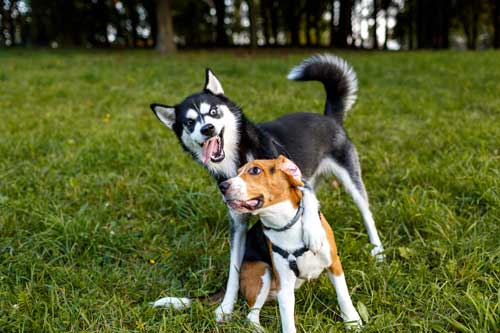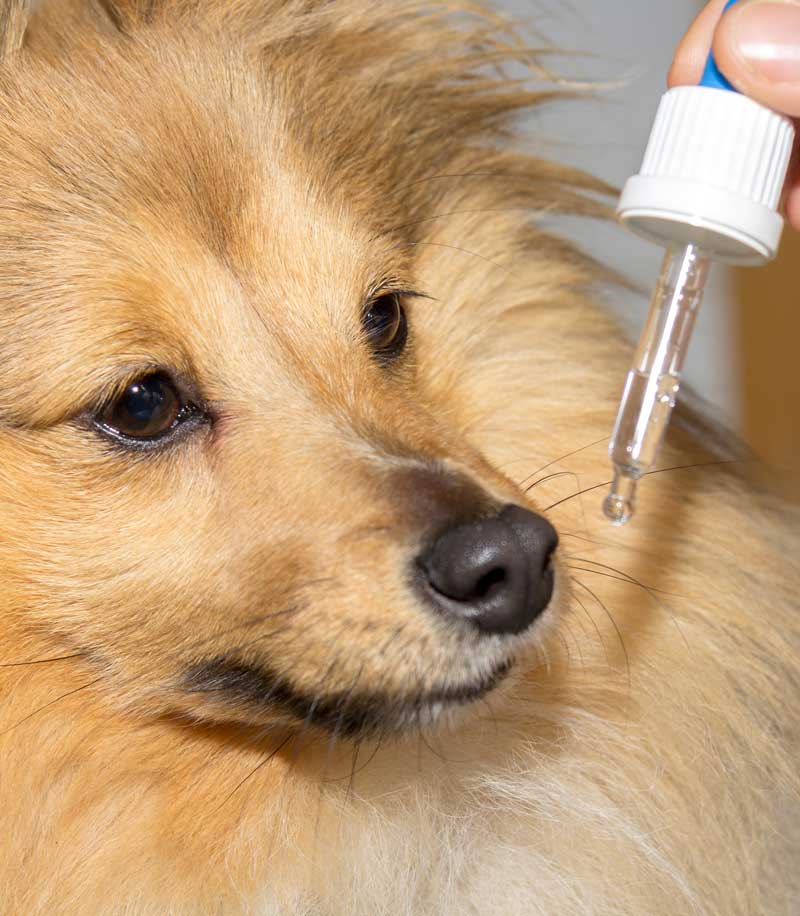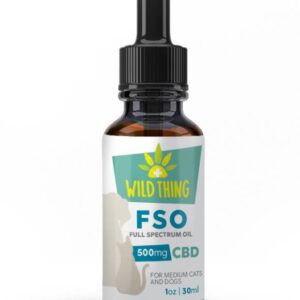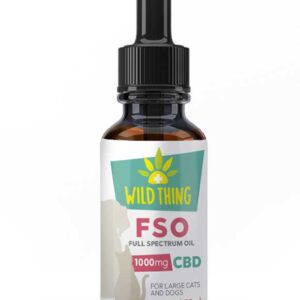Aggression is a very concerning behavior for dog owners.
Some dogs may grow out of this behaviour as they go through their adolescents phase, others may require treatment or medication. Depending on what’s causing the aggressive behaviour, it’s important as a dog owner you address it immediately.
Dog aggression rears its ugly head in many different ways, and understanding the causes is as important as how you respond to it.
Ailment Guides:
Appetite Loss In Cats
Abdominal Pain In Dogs
Inflammatory Arthritis In Dogs
canine aggression
Different types of aggression in Dogs?
Social Aggression
Aggression towards other dogs over territory, toys or attention from humans is very common. For example, you dog may play nice in the dog park with other dogs, but once you show some affection to one of those dogs it may trigger your dogs aggressive behavior.
Learned Aggression
If dog has learned an aggressive behavior that will get them what they want, it is likely to repeat the behavior. For instance, if barking and jumping on the back door always gets it to open for them, they will always do it. Similarly, if growling and showing their teeth keeps bigger dogs away from them, they will continue the practice to remain in a safe space.
Protective Aggression
Most common in a mother protecting her young; however, many dogs can be very protective of their owners and younger members of the family.
Territorial Aggression
Dogs will protect they home. Barking as passers-by and the mail man are a couple examples of this aggressive behavior dog owners see daily.
Fear Motivated Aggression
When a dog feels threatened, it will react accordingly, even if it’s an innocent enough gesture. For example, you might just be reaching down to attach a leash, but the dog may perceive this as a threatening action and snap or lunge at you. In short, you should be aware of actions your dog may perceive as threats, even if you know they are not.
Common Causes of aggression in Dogs?
Don't Wait Until It's Too Late
If your dog starts to show unexplained aggressive behavior, you should see your veterinarian. Tumors, brain disease or rabies don’t show any visible signs, but they do provoke aggressive behavior from your dog.
Illness or injury: Medical conditions and pain can cause a dog that never showed aggressive behavior in the past to suddenly lash out. Fractures, arthritis, internal injuries and lacerations can bring on aggressive behavior in any dog.
Fear: A dog that is scared for its safety can exhibit aggressive behavior. If a dog feels it is in danger it will react aggressively to protect itself. For example, if a dog is backed into a corner and feels it can’t escape, reaching out to pick it up might be perceived as a threat, causing the dog to snap or bite.
Possessiveness: Most dogs are very possessive of their toys, bed and yard. Most dogs exhibit possession aggression by growling to protect their favorite items or locations.
Dominance: Dog’s trying to establish dominance often show aggression. They want to be in charge and control the situation by growling, snapping and sometimes biting. This behavior is usually directed towards other dogs, but can also be occur with people.
Signs of aggression in dogs:
Aggression is obvious when it happens, but noticing the warning signs can mean the difference between injury to your dog or another canine.
Aggression in dogs shows itself in many different ways:
- Lunging
- Biting
- Snapping
- Growling
- Posturing
- Barking
Aggression Has Many Forms
A dog’s way of showing aggression is likely to change as he grows older. For example, a dog that would growl as an adolescent may turn to snapping or biting it ages and becomes more fragile.
Why CBD can be an effective treatment & preventative for aggressive dogs
CBD – or Cannabidiol – can be a very effective regulator of aggression.
Cannabidiol (CBD) can be very beneficial for balancing your dog’s mood. CBD helps to lessen the effects of lethargy, gastrointestinal issues and reduces anxiety, aggression and stress-related disorders.
Think of CBD as a supplement that can reduce the severity and frequency of most – if not all – of hypothyroidism/hyperthyroidism symptoms.
Cannabidiol is a phytocannabinoid that has been shown to have a prominent effect on numerous ailments – including epilepsy, arthritis and cancer. Remedies containing CBD achieve this by interacting with your dog’s endocannabinoid system. Almost all animals, like people, have an endocannabinoid system; this network of neurotransmitters is integral to physiological processes like memory, mood, pain, stress and appetite.
This complex biosystem is very prevalent in dogs in comparison to other species. Canines have a high concentration of CB1 & CB2 receptors in their brainstem. CB1 receptors affect the brain, lungs, vascular system and muscles, gastrointestinal function; whereas, CB2 receptors are linked to bones, skin spleen and glial cells. In combination, CB1-CB2 collaborate in influencing the overall immune system, liver, kidneys, bone marrow, pancreas and brainstem.
CBD can help your dog by producing anti-inflammatory, anti-anxiety, antipsychotic, antispasmodic and analgesic effects indirectly – that is, CBD interacts with your dog’s ECS (Endocannabinoid System) opposite to THC which directly binds to the Cannabinoid Receptors of the body. This does two things: makes the positive remedial properties more bioavailable to your dog; and lessens or negates the psychoactive effects, such as those associated with THC ingestion.
As you can see by the wide scope of ailments that CBD effects, it is clear to see how introducing CBD into your dog’s routine can ensure your dog’s mood and behaviors are balanced.
Ailment Guides:
Feline Hyperesthesia
Dermatitis In Dogs
Cancer In Cats

